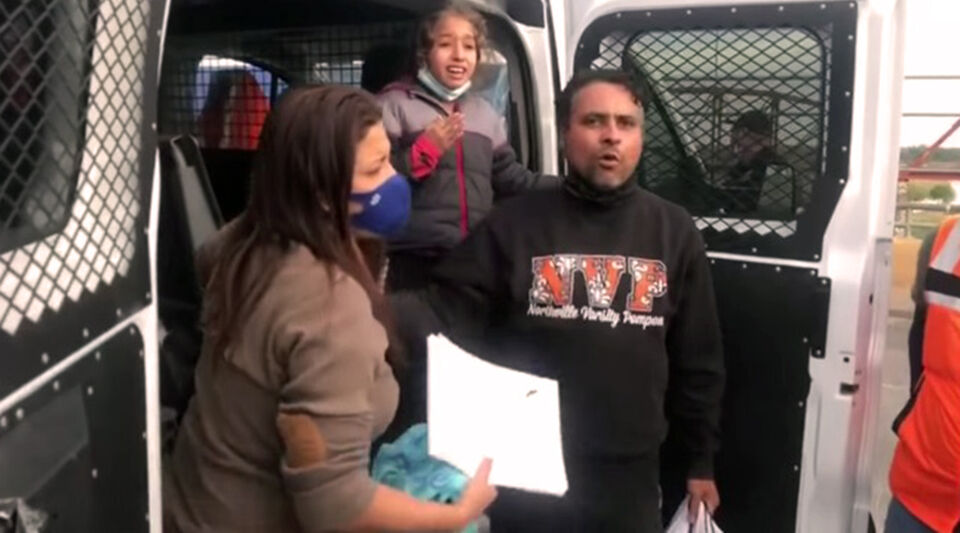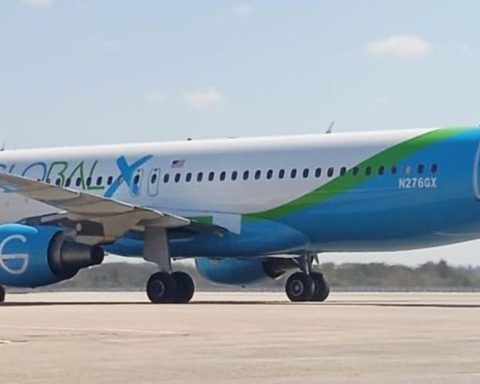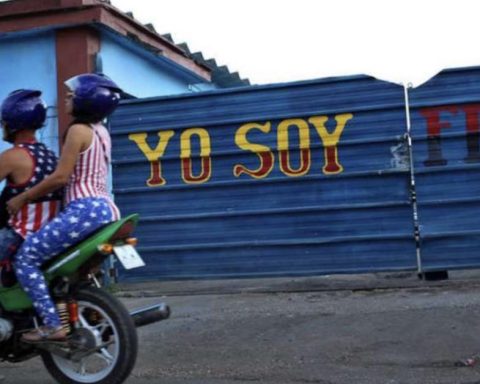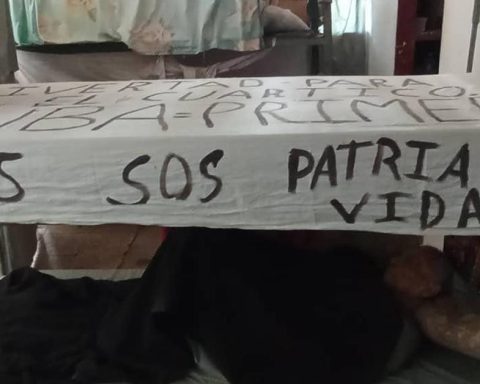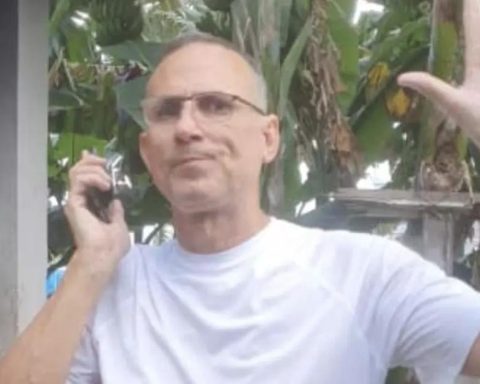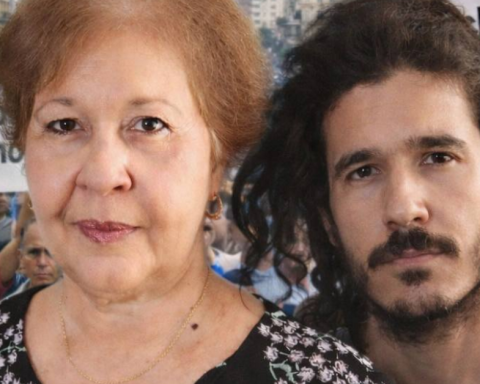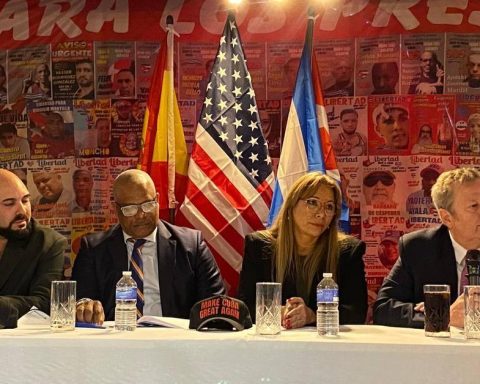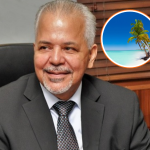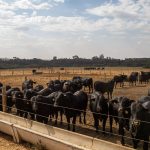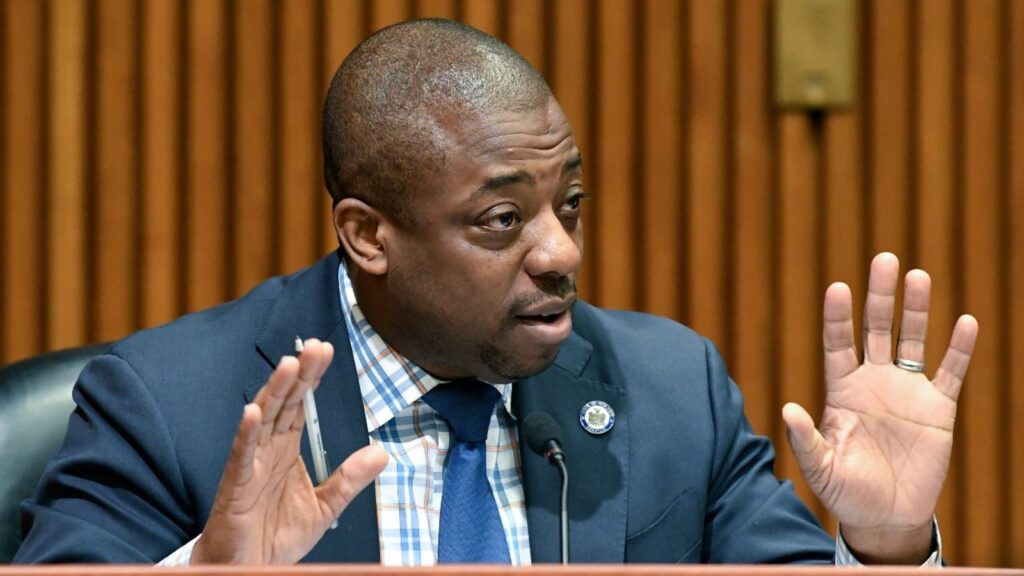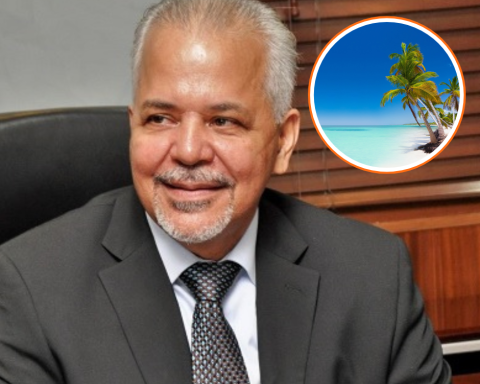Samanta María pleaded with Customs and Border Protection officials in Eagle Pass, Texas, not to return her to Mexico. The image of this nine-year-old Cuban girl, her parents, Yairely Andreu and Ramón Tejera, and 22 migrants getting off a van at the midpoint of the International Bridge II, which connects Piedras Negras (Coahuila) with the United States, was shared by various media on March 26.
Migration deported this family to Cuba despite having legal stay permits for 180 days. At the Piedras Negras station, to which they were taken after being detained in Ciudad Acuña, he tells 14ymedio Tejera via mobile, “we were exposed to hunger, mistreatment, cold, we had nothing to cover ourselves with… in the group there was a boy with his pregnant wife who knocked on the door and we took the opportunity to leave.”
A group of 25 migrants, including several children, managed to reach Eagle Pass, “where they took our names and surnames and asked us our nationality, but they did not give us another chance, they returned us without an explanation,” mentions this Cuban who is now in Camagûey.
“They deported us and we have nothing in this country, we only have faith and the virtue of being alive,” says Tejera, Samantha’s father. “We don’t have a house or money to feed my daughter, what awaits us is very hard and difficult.”
Returning to the Island has become “hell” for this naval engineer and his family. Tejera knows that the situation is not going to change in this country that she considers a “murderer” and from which she tried to “flee” with her family, but the corruption of some immigration agents in Mexico prevented her from reaching the United States. I had problems these days in Cuba and they denied me employment in several places”.
“I need help, someone to advise me to qualify for asylum in the US or Mexico,” asks this Cuban who, he says, was mistreated by Mexican immigration agents and deported along with his wife and daughter for not paying extortion. This journal has documented these arbitrariness in centers for foreigners irregular, In addition to the network smugglers and drug traffickers Cubans face on their way to the northern border.
The bus in which they sought to reach the border city of Ciudad Acuña was stopped by liaison police on March 23, who asked them for 1,500 pesos in exchange for letting them pass. “As we couldn’t pay, they took us to the detention center” which is located near the Border Bridge II in Piedras Negras, says this father of a family who managed to escape and tried unsuccessfully to cross the border to the US with his wife and daughter.
“They gave us back and handed us over to Immigration. In the video that they spread on networks You see a man wearing a white sweater, who told them: ‘They give me 4,000 dollars per person and I put them in the Rio Grande so they can cross,'” Tejera denounces. “Since we didn’t agree, they took us to Villahermosa, in Tabasco, and there they asked us for 1,000 dollars to release us, but since I didn’t get what they asked for, they gave us back”.
Those who paid, including a man surnamed Mansur, his wife and children, were released.
“I need help, someone advise me to qualify for asylum in the US or Mexico”
Tejera and his family sold everything to leave Cuba on February 20 via Panama, “a four-hour layover and from there to Managua,” he says. “In Nicaragua we pay a coyote that took us to Mexico but that was something hellish: they put us in the trunks of cars”.
In Honduras they were assaulted almost when they reached the border and here, “the National Police demanded 20 dollars per person to be able to continue. They say that every Cuban has a relative in the United States and they have to be paid. They take your phone away and they themselves call your family and ask for money by transfer, “he denounces.
They entered Mexico through Chiapas on February 26. “We showed up at the delegation of the Mexican Commission for Refugee Aid (Comar) on Monday, February 28, but with the visit of the President of Mexico to Chiapas, the Migration offices in Tapachula sent us to Ciudad Hidalgo, where that we delivered papers on March 15 and they gave us the documents on March 17,” says Tejera, who has videos of these moments.
With the safe conduct they undertook the trip to the border with the United States, they passed through Mexico City, where they made a brief stopover and from there they went to Ciudad Acuña, where they were detained before being returned to Cuba.
________________________
Collaborate with our work:
The team of 14ymedio is committed to doing serious journalism that reflects the reality of deep Cuba. Thank you for joining us on this long road. We invite you to continue supporting us, but this time becoming a member of our journal. Together we can continue transforming journalism in Cuba.
